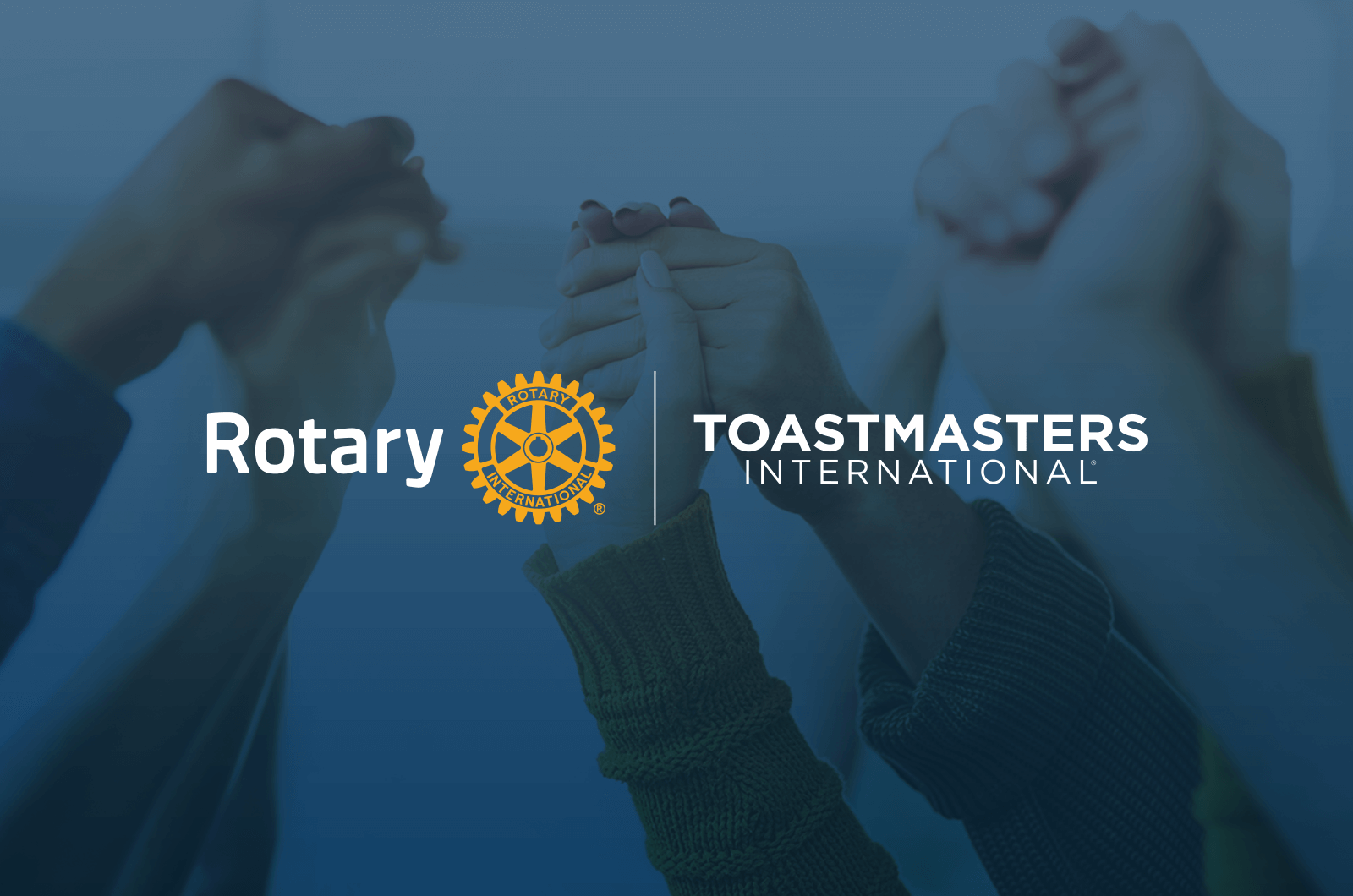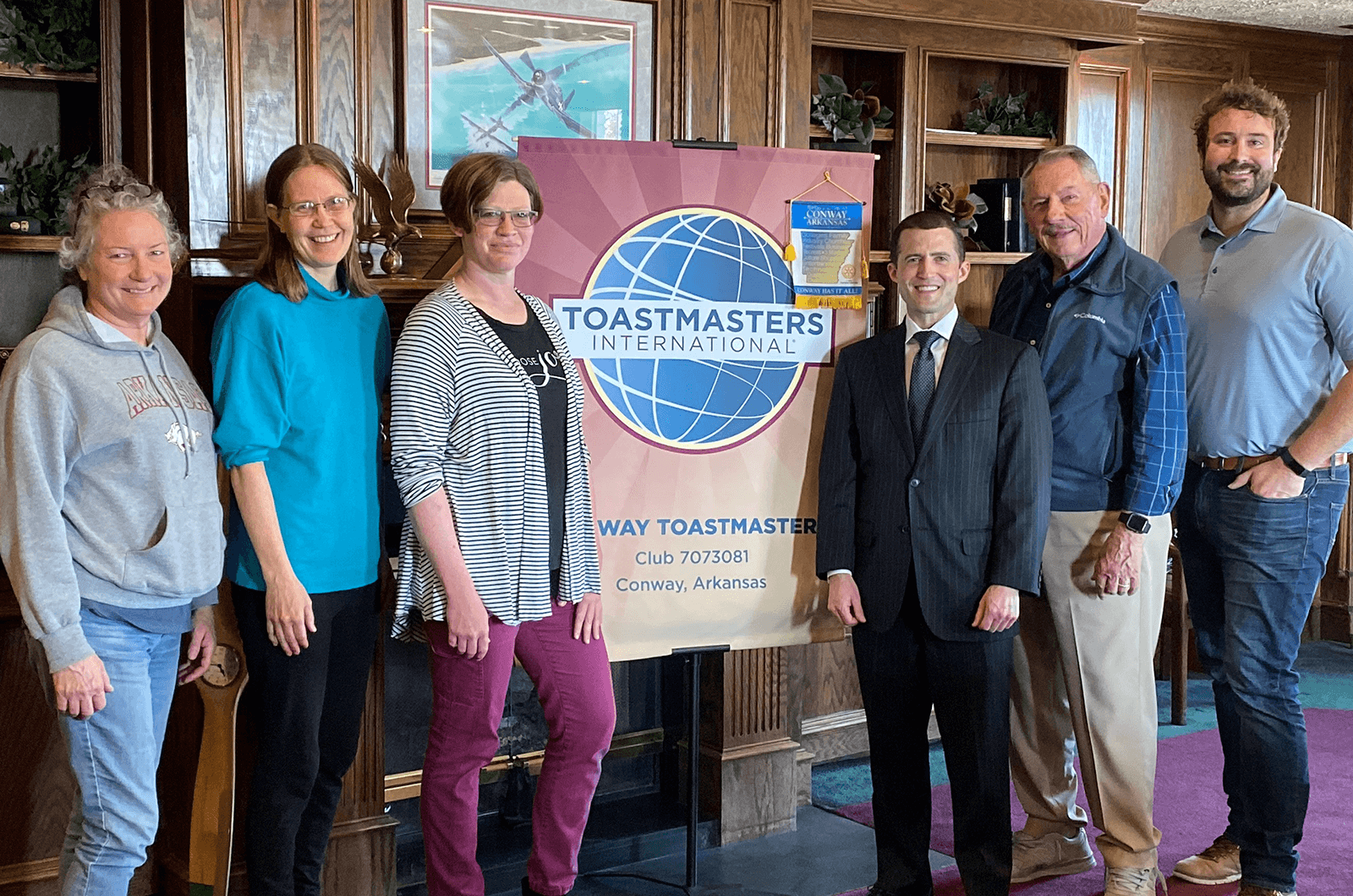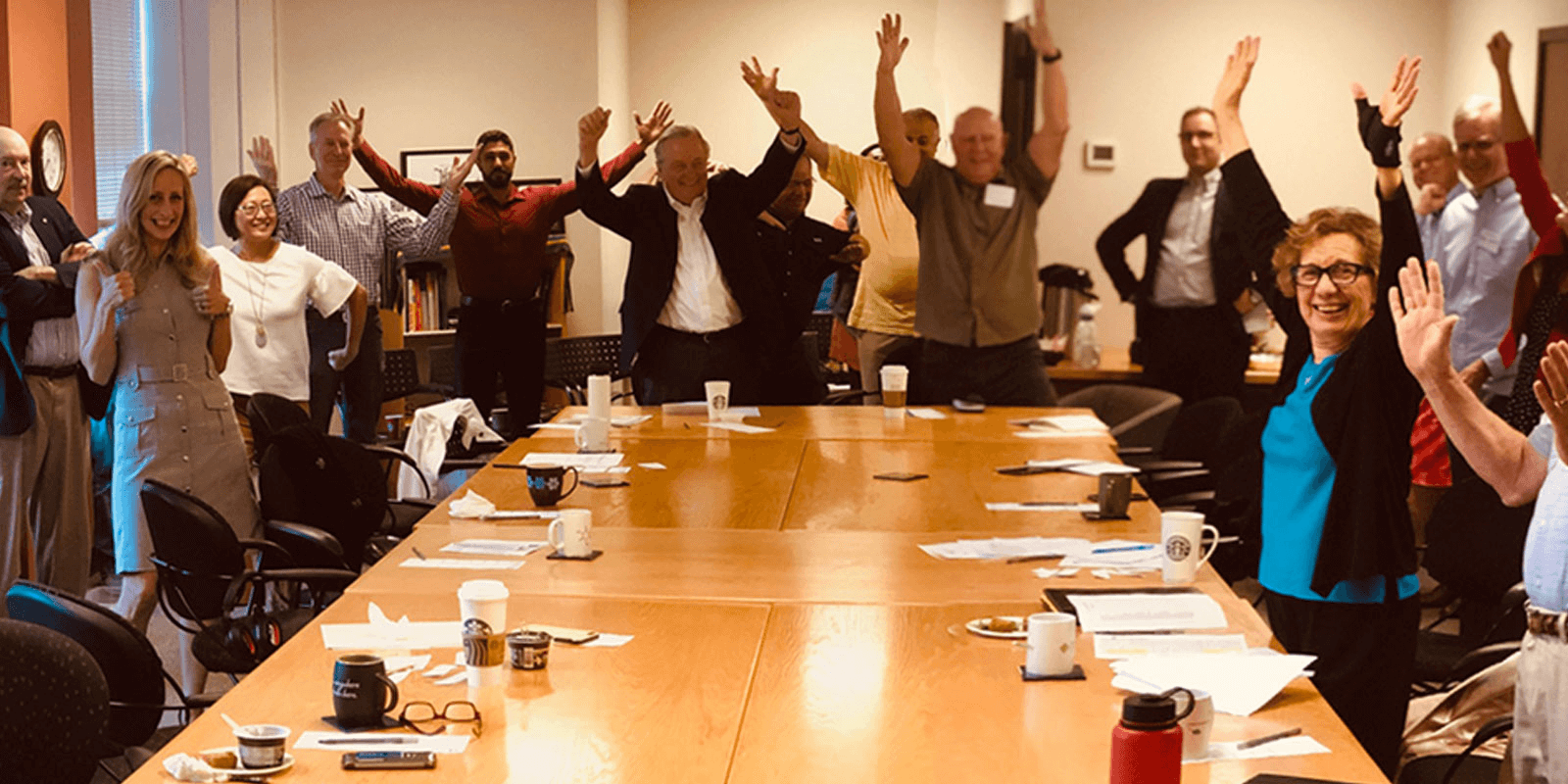
Toastmasters International and Rotary International. Two organizations with a long history, global impact, and proven track record of helping people. And now they have something else in common: They are teaming up to strengthen their members’ skills and broaden their opportunities. The Toastmasters-Rotary alliance, announced in January, will leverage the strengths of both organizations to help members grow personally and professionally.
Later this year, Toastmasters will begin delivering eight educational courses tailored to members of Rotary and Rotaract (a Rotary-sponsored organization for 18-to-30-year-olds). The phased rollout of the eight courses will help Rotarians develop and hone their leadership and communication skills.
Toastmasters members, in turn, can benefit from connecting with Rotarians—1.2 million members in nearly every country in the world—and learning from the organization’s model of humanitarian service. Members can use their communication skills to impact their communities.
To learn more details about this alliance, visit the Toastmasters website and watch the video below.
Some Toastmasters and Rotarians have already teamed up in Toastmasters clubs founded by Rotarians. Rotarians say they benefit greatly from their Toastmasters involvement, pointing to the improvement in their communication and leadership skills—important attributes for members of an organization dedicated to such efforts as fighting disease, promoting peace, supporting education, and providing clean water to poor countries. Rotary’s motto is “Service Above Self.”
“It’s service, but if you don’t have communication skills and know how to work with people, it doesn’t work, and Toastmasters is key to that,” says Neal Marsh, a longtime member of both organizations and a founding member of a Toastmasters club in Poughkeepsie, New York.
Toastmasters members say they are inspired by Rotarians and their commitment to social issues. “There is a sense of camaraderie that permeates their attitude of ‘being of service,’” says Linda Farley, DTM, District 53 Director. “They share the Toastmasters core values but with a Rotarian perspective.”
Here are four places where Toastmasters clubs were started by Rotarians.
Poughkeepsie, New York
The club in this city has a dynamic and deep-rooted history. The driving force behind its creation 36 years ago were two engineers from IBM, Bill Lang and Myron Bashor, both longtime Rotarians and Toastmasters.
“Bill was appalled at the way a lot of staff meetings [at] IBM were being conducted. They were all over the place,” says Neal Marsh, who also was an IBM engineer at the time. “So he started the Toastmasters club so people could learn to conduct decent meetings.”
For its first eight years, the Toastmasters club was only for IBM employees; but since 1992, it has been a community club open to all. Bashor has been in Toastmasters for 56 years and is still an active member. Lang stayed active in Toastmasters until the month before he died four years ago, at the age of 90.
Marsh first joined Toastmasters in 1965 after he graduated from college and says the skills he developed were a major boost to his career. He later joined Rotary and is still involved with both organizations. He used his communication skills recently to help connect area Rotary clubs trying to work together for an ambitious project designed to bring a water system to Haiti.
District 53 Director Linda Farley recently visited the club and watched the 92-year-old Bashor give a Veteran’s Day speech about his military service in World War II and beyond. She marvels at the way older people like Bashor and Marsh are still out there, moving forward, giving speeches, and helping in the community.
“Other Toastmasters,” she says, “can learn from them—from a service perspective.” Toastmasters International and Rotary International complement each other, she adds, saying she’s excited about the two organizations working together. “I think it will be a really good marriage.”
Conway, Arkansas
Members of a local Rotary club chartered this community Toastmasters club last August. Club president Ben Temple, one of the charter members, says his Toastmasters experience paid immediate dividends. Temple was a spokesperson for a gala and needed to promote the event—which raised money to build water wells in Ghana and Haiti.

“I was in the news, on the radio, on TV. I got such positive feedback, especially for my appearance on TV,” says Temple. “If it wasn’t for Toastmasters, those all would have been botched!”
“I’ve learned to slow down when I speak. I love Toastmasters, from both a personal and professional perspective.” He adds that being club president has strengthened his ability to run organized, efficient meetings—something that helps him in Rotary also, where club meetings are structured similarly to Toastmasters club meetings.
Michael D’Almeida, a fellow Rotarian and a longtime Toastmaster, says he, too, has benefited from better communication and leadership skills. He recalls an event he attended when he was president of the Conway Noon Rotary Club honoring local high school students in Rotaract clubs. On the spot he was asked to address the students. He was unfazed.
“That’s because I had the practice of speaking before a large group of people in Toastmasters and speaking impromptu,” he says. “So my Toastmasters training was extremely helpful.”
Portland, Oregon
Rotarians Richard Wingard and Terry Beard are charter members of a Toastmasters club in Portland, Oregon. They say the group is a vibrant mix of Toastmasters and Rotary members who have formed close connections. About half of the 40 members are Rotarians. Both men say the supportive environment cultivated in Toastmasters meetings has allowed members to share personal experiences and offer genuine feedback to each other.

Beard and Wingard say an impetus for starting the club was the poor quality of presentations at their Rotary Club—the Rotary Club of Portland, which has more than 250 members. In 2015, Beard, who had already been a Toastmaster for many years, went to the club’s board of directors with a proposal. “I said the solution to this problem is Toastmasters. They looked at me and said, ‘That’s a great idea.’” The board gave their approval to start the Toastmasters club, and it was chartered soon after.
Beard has participated in many Rotary projects, including Habitat for Humanity, Meals on Wheels, and trips to Chile for humanitarian work. In a post published on the Rotary Voices blog, he wrote that Toastmasters helps Rotarians find their voice and “better share their Rotary story with the public.”
“As we build our communication and leadership skills, we become better equipped to tackle the world’s problems,” he added.
Wingard, a past president of both the Toastmasters and the Rotary club, says non-Rotarians in Toastmasters benefit from learning about the Rotary ethos, which can inspire them to use their skills to help and lead people in the larger community. “Just like Toastmasters changes people’s lives, Rotary also helps them change their lives, because they get out and end up doing things for people. It changes the way they look at things.”
New York City
When Anny Jiang started this Toastmasters club in 2015 along with two fellow Rotarians, her primary goal was to help business owners sharpen their communication skills, including non-native English speakers like herself who wanted to practice their English. Eventually the club broadened its goals and its membership, including more of Jiang’s fellow Rotarians.
Her Rotary club, located in New York’s Chinatown, does a variety of community projects, such as raising funds for local students and providing scholarships to disadvantaged youths. Jiang says being in Toastmasters transformed her from someone scared to speak English to one who now feels comfortable with public speaking.
“I’m not shaking anymore [in Toastmasters meetings] and thinking, Oh my God, don’t call my name,” she says with a light laugh. “Now I go out to events, introduce myself, and say a few things.
“I think people see that I’m doing that now and think, If you can do it, Anny, maybe I can too!”
Non-Rotarians in the Toastmasters club have enjoyed learning about Rotary, she says. They’ve asked her to speak about the organization and some have participated in her Rotary club’s community activities.
The Chinatown Rotary club has also joined in to help the Toastmasters group. One time, it supplied the food—the club meets in a Chinese restaurant—for a Toastmasters Open House lunch. The event was a big success, notes Jiang.
Whether sharing lunch or connecting over public speaking and service, the two organizations enjoy a complementary relationship. Toastmasters and Rotary, says Jiang, “go hand in hand.”
Paul Sterman is senior editor, executive and editorial content, for Toastmasters International. Reach him at psterman@toastmasters.org.



 Previous
Previous
 How Can You Support the Toastmasters-Rotary Alliance?
How Can You Support the Toastmasters-Rotary Alliance?
 Previous Article
Previous Article